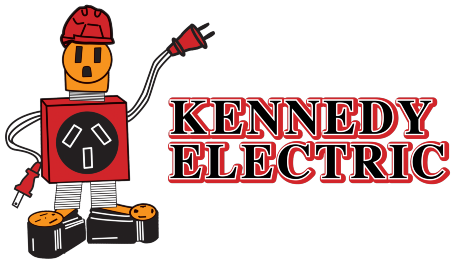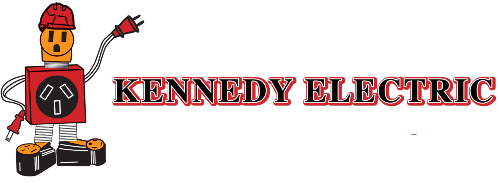Safe and Efficient Electrical Wiring Solutions for Barns
From climate control and lighting to water pumps and heavy-duty tools, today’s agricultural operations depend on a solid electrical foundation.
Barns may seem rustic on the outside, but behind the hay bales and feed bins lies a need for power that rivals many modern buildings. From climate control and lighting to water pumps and heavy-duty tools, today’s agricultural operations depend on a solid electrical foundation. Safe, efficient wiring isn’t just about flipping a switch—it’s about supporting day-to-day tasks, protecting animals and property, and making sure everything works when you need it most.
Professional barn wiring is a specialized service. It takes more than standard know-how to handle the unique conditions that agricultural buildings present. You need a licensed residential or commercial electrician who understands the challenges—humidity, dust, curious animals, and fluctuating temperatures—and can build an electrical system tough enough to thrive in that environment.
Prioritizing safety in agricultural spaces
Safety in barn wiring isn’t optional. Between damp floors, unpredictable weather, metal structures, and electrical-hungry equipment, barns are full of potential risks. A well-designed system, installed by an experienced electrician near me, reduces those risks significantly and helps you avoid both minor mishaps and serious emergencies.
GFCI outlets are a must in any area where water and electricity might cross paths. These devices cut power the moment they detect an irregularity, stopping electrical shock in its tracks. They’re especially critical in wash stalls, milking stations, and any zone where wet conditions are common.
Proper grounding and bonding also play key roles in keeping people and animals safe. Bonding all metal structures and grounding the system helps neutralize stray voltage—a sneaky danger that can cause shocks or erratic equipment behavior. It might sound like electrical theory, but it has very real, barn-sized consequences.
And then there’s the physical environment. Barns are tough places, and your wiring should be tougher. Weatherproof boxes, tightly sealed conduit, and rodent-resistant materials help prevent the kinds of damage that turn into costly repairs or surprise outages. A skilled commercial electrician plans for these risks from the start, building a system that holds up under pressure and paw prints.
Reliable power for essential equipment
A barn without power is basically a shed with good intentions. Whether you’re running fans in the summer, heating lamps in the winter, or automatic feeders year-round, reliable electrical service keeps everything functioning smoothly. The challenge is making sure every piece of equipment receives the power it needs—without creating fire hazards or tripping breakers every few hours.
Dedicated circuits are the first line of defense. Rather than daisy-chaining high-load machines onto a single feed, an experienced electrician distributes the load strategically across multiple circuits. This process reduces the chance of overload and keeps everything operating at peak performance.
Outlet placement is another major factor. Stretching an extension cord across a barn aisle isn’t just inconvenient—it’s dangerous. Tripping hazards, cord damage, and overuse of portable wiring all create real problems. A professionally designed layout includes plenty of well-positioned outlets so you can plug in without stretching or improvising.
Lighting also matters more than most people realize. A well-lit barn improves workflow, reduces stress on animals, and makes late-night checks more efficient. A licensed electrician near me selects lighting systems that provide even coverage while minimizing energy use and long-term maintenance headaches.
Energy efficiency in agricultural buildings
Farm life might be hard work, but your wiring doesn’t have to be. Smart, energy-efficient electrical systems lower your operational costs without compromising performance. When installed correctly, they pay for themselves in reduced utility bills and longer equipment life.
LED lighting is the go-to for modern barns. These fixtures deliver bright, clear light while using a fraction of the power of traditional bulbs. They also last significantly longer, which means fewer ladder trips and less time swapping bulbs when you’d rather be doing literally anything else.
Motion sensors and timers give you even more control. Areas like storage rooms, feed closets, and tool sheds don’t need to be lit all day. With automated lighting, the system only kicks in when someone walks in—saving energy without sacrificing visibility.
And when it comes to climate control, energy efficiency is critical. Heating and ventilation systems must be wired to run reliably without driving up your monthly power bill. A residential or commercial electrician can recommend equipment that balances power consumption with environmental control, giving animals a comfortable, healthy space without overloading the panel or your budget.
Weather-resistant wiring for durability
Mother Nature doesn’t care about your wiring. Rain, snow, wind, sun, and critters are always trying to sneak into places they don’t belong. Outdoor barns and open-air structures face a constant barrage of environmental threats, and your electrical system needs to be up to the challenge.
Wiring that’s meant to survive in a house isn’t always right for a barn. You need UV-resistant cables that won’t crack or degrade under direct sunlight. Waterproof junction boxes and sealed connectors keep moisture from shorting out your connections. Everything must be rated for outdoor use and installed with durability in mind.
Underground wiring is a popular choice for outbuildings, but only if it’s done correctly. Properly encased conduit is a must to prevent moisture infiltration, physical damage from tools or tractors, and underground pest invasions. And let’s not forget the importance of insulation. Cold weather can shrink plastic and rubber, making them brittle. Heat can cause expansion and stress. A well-installed system compensates for all of these conditions without missing a beat.
The more extreme the environment, the more important it is to use high-grade materials and techniques. That’s where a professional makes a big difference—choosing components that stand the test of time and installing them to resist every threat short of a tornado.
Compliance with electrical codes
Barns don’t always receive the same attention as homes or offices when it comes to electrical inspections—but they should. Agricultural buildings have their own electrical codes and standards, and following them is essential for both safety and legality.
These codes address everything from wire type and insulation ratings to breaker sizes and outlet placement. They’re designed specifically for farm environments where dust, humidity, and animal activity create unique risks. Failing to comply with these codes can result in rejected permits, insurance issues, or worse—serious injury from faulty wiring.
A licensed electrician stays updated on all applicable regulations. Whether you’re building a new barn or upgrading an old one, they make sure every wire, box, and circuit complies with national and local standards. No guesswork. No shortcuts. Just reliable, code-compliant work from start to finish.
If you’re ever unsure whether your current system meets the latest standards, consider asking a professional for an inspection. They can spot issues before they turn into problems and help you plan upgrades that bring everything up to code without blowing the budget.
Professional installation for reliable performance
Wiring a barn isn’t like wiring a bedroom. It takes a specific blend of technical knowledge, problem-solving, and on-site experience to accomplish the job. Professional installation sets the tone for a reliable electrical system that handles whatever your operation throws at it—today and tomorrow.
Every good system starts with a thoughtful design. A licensed electrician begins by evaluating your current and future power needs. They map out circuits, calculate loads, and identify potential pinch points. They know when to separate systems, when to group equipment, and how to keep voltage stable across the board.
Wire sizing matters too. Undersized wires overheat and underperform. Oversized wires can be costly and unnecessary. A pro chooses the perfect size for each circuit, balancing efficiency and performance with cost-effectiveness.
Organization is another underrated advantage. A professionally wired barn includes clearly labeled panels, accessible junction boxes, and tidy conduit runs that make future maintenance faster and safer. No tangled webs. No mystery wires. Just clean, reliable power from start to finish.
And let’s not forget peace of mind. With professional installation, you don’t lie awake wondering if your heating system can trip the breaker in the middle of a snowstorm. You don’t search for an emergency electrician when a cheap outlet finally gives out. You just work, live, and care for your animals, knowing the wiring has your back.
Creating a safe and functional barn environment
At the end of the day, barn wiring isn’t just about power—it’s about performance, protection, and peace of mind. A safe and efficient electrical system makes everyday tasks easier, reduces risks for people and animals, and guarantees that your equipment performs reliably.
Whether you’re running a commercial operation or a backyard homestead, working with experienced electrical contractors near me is the smartest choice you can make. They bring the tools, training, and insight needed to build a system that lasts.
From weatherproofing and grounding to circuit layout and code compliance, every decision matters. And when it’s all said and done, the result is a barn that functions better, costs less to maintain, and stays safe season after season.
Kennedy Electric is a reliable full-service electrical company serving residential and commercial customers in Citrus, Hernando, and Pasco Counties. We offer electrical repairs, boat lift wiring, remodels, low voltage lighting, generator hookups, RV power, electrical inspections, fan installation, home lighting, new circuits, panels, and more.


